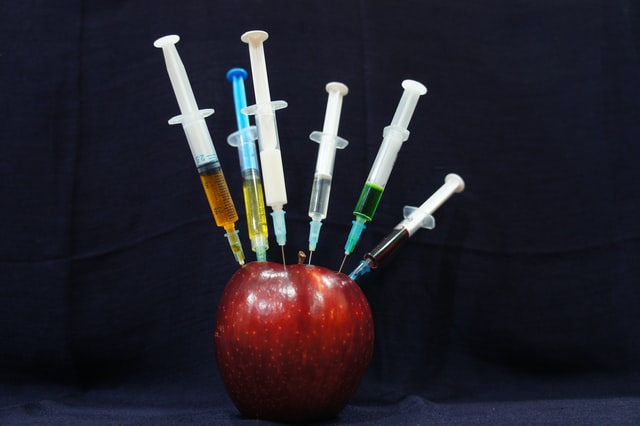Omega-3 Fatty Acids Improve PCOS Pregnancy Rates
Omega-3 Fatty Acids, commonly found in foods such as fish, seeds, and nuts, or supplements such as fish oil, are healthy dietary fats that are important for bodily functions to occur appropriately. They can also lower risk of complications such as cardiovascular disease and strokes. Recently, it has also been uncovered by studies involving both animals and humans that Omega-3 fatty acids can impact female fertility positively by improving oocyte (developing egg) quality. This increases chances of successful embryo implantation and helps fix irregular menstrual cycles, which would decrease chances of pregnancy. Irregular menstruation leads to fewer instances of ovulation, making it less likely an egg will be fertilized in order to implant into an individual’s uterine lining.
Although 15% of couples of reproductive age around the world face infertility, individuals with Polycystic Ovarian Syndrome (PCOS) are more likely to do so as infertility in women with PCOS is between 70 and 80%. PCOS is a hormonal disorder that may cause individuals to face irregular menstrual cycles due to a lack of ovulation. Individuals with PCOS are therefore more susceptible to infertility and may also be resistant to fertility treatment.
A recent study conducted at the Lev Academic Institute finds a correlation between Omega-3 fatty acid supplements and enhanced fertility rates, specifically in females suffering from PCOS. Researchers suggest that Omega-3 intake for women facing fertility challenges can increase their chances of pregnancy by improving oocyte quality, embryo implantation, and menstrual cycle function. The participants of this study included 34 women aged 25 to 38 who were suffering from PCOS and showing either irregular ovulation--oligoovulation—or a lack of ovulation--anovulation.
Although 15% of couples of reproductive age around the world face infertility, individuals with Polycystic Ovarian Syndrome (PCOS) are more likely to do so as infertility in women with PCOS is between 70 and 80%. PCOS is a hormonal disorder that may cause individuals to face irregular menstrual cycles due to a lack of ovulation. Individuals with PCOS are therefore more susceptible to infertility and may also be resistant to fertility treatment.
A recent study conducted at the Lev Academic Institute finds a correlation between Omega-3 fatty acid supplements and enhanced fertility rates, specifically in females suffering from PCOS. Researchers suggest that Omega-3 intake for women facing fertility challenges can increase their chances of pregnancy by improving oocyte quality, embryo implantation, and menstrual cycle function. The participants of this study included 34 women aged 25 to 38 who were suffering from PCOS and showing either irregular ovulation--oligoovulation—or a lack of ovulation--anovulation.
Image Source: Nadezhda Moryak
This study involved a control and experimental group in which the control group consisted of 17 women with a mean age of 33.9 years, and the experimental group consisted of 17 women with a mean age of 32.7 years. Both groups underwent 60 treatment cycles at a fertility clinic. Participants in the experimental group received three 600 milligram capsules of Omega Max-3—an Omega-3 supplement—per day for the duration of the study. Participants in the control group received a placebo, three capsules that were intended to mimic the appearance of the Omega-3 supplement while having no effect. Individuals received treatment for a maximum of two menstrual cycles.
At the end of this treatment process, examination of data conducted throughout the duration of the study pertaining to size and quantity of follicles, various hormone levels in the blood, and thickness of the endometrium at ovulation were recorded. Then, pregnancy rates of both groups were taken, in which the experimental group that had taken Omega-3 supplements had a higher pregnancy rate at 26.7% compared to 13.3% in the control group. This is apparent in the case of women who reported being overweight or obese, where those in the Omega-3 experimental group had a significantly higher pregnancy rate than those in the control group, with 29.6% becoming pregnant in the experimental group as compared to 5.3% in the control group.
The results of this study suggest that Omega-3 fatty acid supplements can aid in fertility treatment of women who are experiencing irregular ovulation or who are not experiencing ovulation at all, particularly those with PCOS. However, the fairly small sample size of this study is not representative of a more general population, and additional studies should be conducted in order to gain a more concrete understanding of how Omega-3 can benefit individuals with fertility issues.
At the end of this treatment process, examination of data conducted throughout the duration of the study pertaining to size and quantity of follicles, various hormone levels in the blood, and thickness of the endometrium at ovulation were recorded. Then, pregnancy rates of both groups were taken, in which the experimental group that had taken Omega-3 supplements had a higher pregnancy rate at 26.7% compared to 13.3% in the control group. This is apparent in the case of women who reported being overweight or obese, where those in the Omega-3 experimental group had a significantly higher pregnancy rate than those in the control group, with 29.6% becoming pregnant in the experimental group as compared to 5.3% in the control group.
The results of this study suggest that Omega-3 fatty acid supplements can aid in fertility treatment of women who are experiencing irregular ovulation or who are not experiencing ovulation at all, particularly those with PCOS. However, the fairly small sample size of this study is not representative of a more general population, and additional studies should be conducted in order to gain a more concrete understanding of how Omega-3 can benefit individuals with fertility issues.
Featured Image Source: Natallia Photo
RELATED ARTICLES
|
Vertical Divider
|
Vertical Divider
|
Vertical Divider
|






